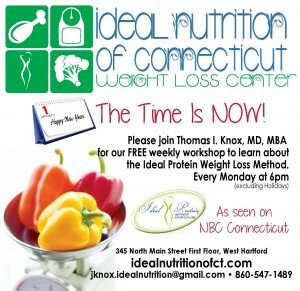- Home
-
Services
- Cardiac Catheterization
- Consultation
- Echocardiography
- EECP Therapy
- Endovenous Laser Ablation
- Ideal Nutrition of Connecitcut
- Monitoring Service
- Nuclear Cardiology
- nutraMetrix
- Nutrition Counseling
- PAD (Peripheral Artery Disease)
- Preventive Cardiology
- Sleep Monitoring
- Stress Test
- Venous Insufficiency
- 24 Hour Blood Pressure Monitoring
- Physicians & Staff
-
Patient Information
- New Patients
-
Medical Library
-
Acute Myocardian Infarction
- ACE Inhibitors
- Coronary Artery Spasm
- Discharge Instructions for Heart Attack
- First Aid: Heart Attacks
- Heart Disease Risk Factors
- How the Heart Works
- Recognizing a Heart Attack or Angina
- Risk Factors for Heart Disease
- Taking a Beta-Blocker
- Taking Beta-Blockers: Discharge Instructions
- Taking Medications for Your Heart
- Understanding Heart Valves
- Anatomy and Physiology
- Arrhythmias / Electrophysiology
- Blood Pressure Control
-
Cardiac Rehabilitation
- Cardiac Rehabilitation (content)
- Cardiac Rehabilitation: Emotional Issues
- Cardiac Rehabilitation: Following an Exercise Program
- Intimacy and Heart Disease: Communication Tips
- Intimacy and Heart Disease: Resuming Sexual Intimacy
- Intimacy and Heart Disease: Talking with Your Partner
- Resources for Heart Health
-
Cholesterol Control
- Controlling Your Cholesterol
- High Cholesterol: Assessing Your Risk
- High Cholesterol and Peripheral Arterial Disease (PAD)
- Lifestyle Changes to Control Cholesterol
- Medication for Cholesterol Control
- Understanding Fat and Cholesterol
- Understanding Food and Cholesterol
- Understanding Your Cholesterol Numbers
-
Coronary Artery Disease
- Coronary Angioplasty
- Coronary Atherectomy
- Coronary Stents
- Glossary of Terms (Cardiovascular)
- Minimally Invasive Bypass Surgery
- Recognizing a Heart Attack or Angina
- Risk Factors for Heart Disease
- Surgery for Coronary Artery Bypass
- Symptoms of a Heart Attack
- Understanding Coronary Artery Disease (CAD)
- What Is Angina?
-
Diagnostics
- Cardiac Catheterization
- Coronary Angiography
- Diagnosing Syncope
- Dobutamine Stress Echocardiography (Echo)
- Echocardiography (Echo)
- Electrocardiogram (ECG)
- Electrophysiology Study (EPS)
- Exercise Stress Test
- Heart Failure: Evaluating Your Heart
- Risks and Complications of Angiography
- Stress Echocardiography (Echo)
- Stress Test
- Tilt Table Testing
- Transesophageal Echocardiography (TEE)
- What Is Event Monitoring?
- What Is Holter Monitoring?
-
Dietary Changes
- Heart Failure: Procedures That May Help
- Eating Heart-Healthy Food: Using the DASH Plan
- Hypertrophic Cardiomyopathy
- Facts About Dietary Fat
- Heart Failure: Medications to Help Your Heart
- Heart Failure: Making Changes to Your Diet
- How to Judge Size of Servings
- Low-Fat Cooking Tips
- Low-Salt Choices
- Reading Food Labels
- Tips for Using Less Salt
- Understanding Dietary Fat
-
Heart Failure
- Coping with Heart Failure
- Coronary Artery Spasm
- Heart Failure: Being Active
- Heart Failure: Evaluating Your Heart
- Heart Failure: Making Changes to Your Diet
- Heart Failure: Medications to Help Your Heart
- Heart Failure: Procedures That May Help
- Heart Failure: Tracking Your Weight
- Heart Failure: Warning Signs of a Flare-Up
- High Cholesterol and Peripheral Arterial Disease (PAD)
- High Blood Pressure and Peripheral Arterial Disease (PAD)
- How to Take Your Pulse
- Hypertrophic Cardiomyopathy
- Living with Cardiomyopathy
- Medications for Cardiomyopathy
- Pericarditis
- Taking Medication to Control Heart Failure
- What Is Dilated Cardiomyopathy?
- What Is Heart Failure?
- What Is Hypertrophic Cardiomyopathy?
-
Heart Surgery
- After Catheter Ablation
- After Heart Valve Surgery
- After Minimally Invasive Heart Surgery: At Home
- After Minimally Invasive Heart Surgery: In the Hospital
- High Blood Pressure and Peripheral Arterial Disease (PAD)
- Before Minimally Invasive Heart Surgery
- Heart Valve Surgery
- Minimally Invasive Bypass Surgery
- Minimally Invasive Valve Surgery
- Nutrition After Surgery
- Recovery from Heart Surgery: The First Few Weeks
- Surgery for Coronary Artery Bypass
-
Medications
- Angiotensin Receptor Blockers (ARBs)
- Cholesterol Medications
- Common Heart Medications
- Fast-Acting Nitroglycerin
- Heart Failure: Medications to Help Your Heart
- Long-Acting Nitroglycerin
- Taking ACE Inhibitors
- Taking Amlodipine
- Taking a Beta-Blocker
- Taking Coumadin
- Taking Corticosteroid (Oral)
- Taking Digoxin
- Taking a Diuretic
- Taking Medications for Your Heart
- Taking Potassium
-
Risk Factor Management
- Aerobic Exercise for a Healthy Heart
- Controlling Stress (Cardiovascular)
- Diabetes and Heart Disease
- Exercise for a Healthier Heart
- High Blood Pressure and Peripheral Arterial Disease (PAD)
- High Cholesterol and Peripheral Arterial Disease (PAD)
- Losing Weight (Cardiovascular)
- Progressive Relaxation
- Tips for Quitting Smoking (Cardiovascular)
- Women and Heart Disease: Tips for Making Small Changes
- Women and Heart Disease: Understanding the Risks
- Women and Heart Disease: What Women Need to Know
- Syncope
-
Valve Disease
- After Heart Valve Surgery
- Diagnosing Heart Valve Problems
- Heart Valve Problems
- Heart Valve Problems: Aortic Insufficiency
- Heart Valve Problems: Aortic Stenosis
- Heart Valve Problems: Mitral Insufficiency
- Heart Valve Problems: Mitral Valve Prolapse
- Heart Valve Problems: Mitral Stenosis
- Heart Valve Surgery
- Medications for Heart Valve Problems
- Minimally Invasive Valve Surgery
- Understanding Heart Valves
-
Acute Myocardian Infarction
- FAQ’s
- About Us
- Contact

